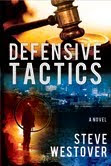
Whether it's Dr.
Seuss with his silly rhymes, or Brandon Mull writing about magical places, or Stephen King telling a frightening tale that will make it just a little bit harder to sleep at night,
one critical need remains constant through genre and stylistic approach; the ability to
tell a compelling story.
Grisham and Twain,
Hemmingway and Faulkner all persist as reader favorites, not because of the way they conjugate verbs or punctuate their sentences, but rather, people love them because of the stories they tell.
Sometimes authors get so excited about writing in first or third person, or using free-indirect discourse, or making their sentences longer, or shorter, or making the language of characters distinct with crazy dialects, that they forget their main purpose in writing a story; the story. Sure, we want to know the characters, their strengths and weaknesses and we want to know about their surroundings, their thought processes and motivations, but all of those things, as interesting as they may be, should be included in the writing as a way to advance the story.
The individual components of a story are not all-important in and of themselves. For example, amazing rims on a car, or new spark plugs may be great, but only insofar as they increase the value of the car, and make it go. Great rims don't mean much if the car is stuck in the driveway. Likewise, a beautifully constructed sentence won't have much value if it detracts from the mood or rhythm of the story.
Have you ever felt that the author was simply writing to impress himself, or is so enthralled about writing chapters and chapters about the sewer system of Paris that you've totally lost interest in the redemptive story? I have. By focusing on the reader, instead of the author, the author has an opportunity to stretch beyond his own comfort level and create something for others to enjoy, not merely pages to be tolerated as a sidetrack back to the story.
Hopefully an author's "ideal reader" is not himself. If it is, he will probably be enthralled with his own work, but will not likely expand his audience very far.
Focus on the story. Make the words count. Use literary tools to help you succeed in telling a compelling story. But remember, the simple act of using literary tools does not make writing successful, the story does.
 In a world of corruption and moral relativism, how far will you go to protect the ones you love?
In a world of corruption and moral relativism, how far will you go to protect the ones you love?























